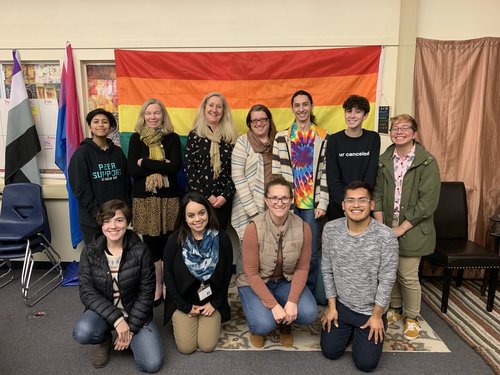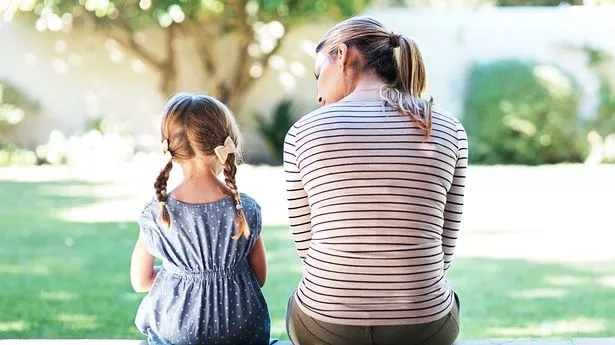Guiding LGBTQ+ Youth in Faith-Based Homes: Tips
Support LGBTQ+ youth in faith-based homes by fostering open communication and creating a safe, accepting environment for identity exploration. Show that faith acceptance and LGBTQ+ support can coexist harmoniously. Listen without judgment, validate emotions, and emphasize their worthiness of love and respect. Encourage dialogue between religious beliefs and LGBTQ+ acceptance. Celebrate diversity and shared values of love within faith communities. Provide safe spaces, affirming resources, and seek guidance from support groups and counselors specializing in LGBTQ+ issues. Remember, supporting LGBTQ+ youth requires empathy, understanding, and active allyship within the faith community.
Key Takeaways
- Foster open communication and unwavering support.
- Validate LGBTQ+ identities as valid and worthy.
- Encourage dialogue and mutual respect.
- Create safe spaces and provide affirming resources.
- Seek guidance from community support and professional counselors.
Understanding LGBTQ+ Identity and Faith

Understanding the intersection of LGBTQ+ identity and faith is essential for providing meaningful support to LGBTQ+ youth in faith-based homes. For many young individuals, their teenage years are a time of intense identity exploration and spiritual growth. It’s vital to create a safe and accepting environment where they can navigate these aspects of themselves without fear of rejection.
Encouraging faith acceptance and LGBTQ+ support can go hand in hand. Emphasize that being true to oneself isn’t contradictory to one’s faith but rather a beautiful expression of the diversity of creation. Help LGBTQ+ youth see that their identities are valid and worthy of love and respect.
Fostering Open Communication and Support
Establishing a space for open communication and unwavering support is key in guiding LGBTQ+ youth in faith-based homes. It’s important to create an environment where these individuals feel safe to express themselves authentically. Building trust is the cornerstone of fostering this open communication.
Let LGBTQ+ youth know that you’re there to listen without judgment, offering guidance and support every step of the way. Encourage them to share their feelings, experiences, and concerns openly.
As you navigate conversations with LGBTQ+ youth, remember to validate their emotions and experiences. Your support and understanding can make a significant impact on their well-being. It’s crucial to actively listen, show empathy, and affirm their identity.
Let them know that they’re valued and loved unconditionally.
Addressing Religious Beliefs and LGBTQ+ Acceptance

Encouraging dialogue and mutual respect between religious beliefs and LGBTQ+ acceptance is key in creating a supportive environment for LGBTQ+ youth in faith-based homes. Managing conflict that may arise between religious teachings and LGBTQ+ identities can be challenging, but it’s vital to approach these discussions with empathy and understanding. Remember that individuals may hold deeply ingrained beliefs, and it’s essential to respect their perspectives while also advocating for LGBTQ+ acceptance.
Celebrating diversity within faith communities can be a powerful way to bridge the gap between religious beliefs and LGBTQ+ acceptance. Emphasize the shared values of love, compassion, and acceptance that are present in many faith traditions. By highlighting these commonalities, you can foster a sense of unity and respect among community members.
When addressing religious beliefs and LGBTQ+ acceptance, remember that change takes time. Be patient with yourself and others as you work towards creating a more inclusive and supportive environment for LGBTQ+ youth in faith-based homes. It’s through open dialogue, mutual respect, and a commitment to celebrating diversity that we can work towards a more accepting and affirming community for all.
Creating Safe Spaces and Resources
To support LGBTQ+ youth in faith-based homes, it’s important to create safe spaces and provide resources that foster acceptance and understanding. Essential environments are critical for LGBTQ+ youth to feel comfortable expressing themselves authentically. Make sure that your home is a place where they feel valued and respected for who they are.
Affirming resources such as books, support groups, and online forums can also play a significant role in providing guidance and reassurance.
Being supportive allies to LGBTQ+ youth means actively listening to their experiences, offering unconditional love, and championing their rights within the faith community. Inclusive education is key to promoting understanding and empathy towards LGBTQ+ individuals. Educate yourself and those around you about the challenges faced by LGBTQ+ youth in faith-based settings.
Seeking Community and Professional Guidance

Consider reaching out to both community support groups and professional counselors who specialize in LGBTQ+ issues to seek guidance and assistance in supporting LGBTQ+ youth in faith-based homes. Support groups can provide a safe space for LGBTQ+ youth to share their experiences, connect with peers facing similar challenges, and access valuable resources. These groups often offer emotional support, education, and advocacy, helping LGBTQ+ youth navigate their identities within the context of their faith backgrounds.
Counseling services tailored to LGBTQ+ individuals can also play an essential role in providing mental health support and guidance. Professional counselors who are well-versed in LGBTQ+ issues can offer a non-judgmental space for youth to explore their feelings, address any conflicts related to their faith and sexual orientation, and develop coping strategies for dealing with potential challenges at home or within their religious communities.
Frequently Asked Questions
How Can I Navigate Disclosing My Lgbtq+ Identity to My Family?
Managing family dynamics while coming out can be challenging. Remember, your identity is valid. Seek support from trusted friends or LGBTQ+ organizations. When ready, have an open and honest conversation with your family. You deserve acceptance.
What Are Some Strategies for Dealing With Rejection From My Faith Community?
When facing rejection from your faith community, remember that you are not alone. Finding support in safe spaces and building resilience through self-care and affirming relationships can help you navigate this challenging experience with strength and courage.
Are There Specific Resources for Lgbtq+ Youth in Rural Areas?
In rural areas, specific resources for LGBTQ+ youth can include online support networks, safe spaces, and community events. These resources offer essential connections, understanding, and solidarity, empowering you to navigate your identity with confidence and resilience.
How Can I Handle Disagreements About Lgbtq+ Issues With Family Members?
When handling disagreements about LGBTQ+ issues with family, use communication strategies to express your feelings respectfully. Set boundaries to protect your mental health. Seek support from allies who understand and validate your experiences.
What Steps Can I Take if I Feel Unsafe in My Faith-Based Home?
If feeling unsafe in your faith-based home, prioritize your safety. Develop a safety plan, reach out to a support network. Seek community resources and prioritize mental health. Remember, you deserve to feel safe and supported.
Conclusion
Remember, supporting LGBTQ+ youth in faith-based homes involves ongoing communication, education, and creating safe spaces.
By understanding their identity and beliefs, fostering open dialogue, and seeking community and professional guidance, you can help them feel accepted and loved.
Be an ally, advocate, and source of support for these youth as they navigate their journey of self-discovery and acceptance. Your love and acceptance can make a world of difference in their lives.
Stay informed, stay compassionate, and stay supportive.

Hey there! 👋 I’m a proud mom and passionate writer, sharing my parenting journey. 📝 Join me as I navigate the ups and downs of motherhood, offering tips, advice, and a sprinkle of humor along the way. 🌟







